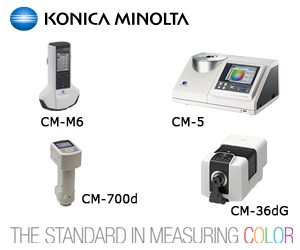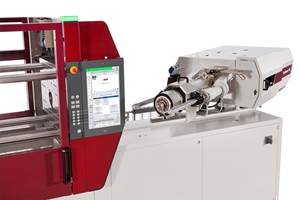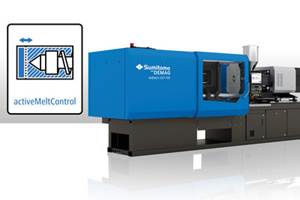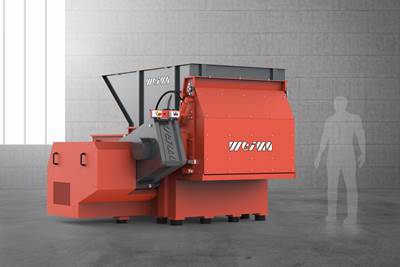11th Hour Extension to Proposed Lockout/Tagout Rule Changes
Deadline extended from Jan. 1 to Jan. 4, 2017 as stakeholders weigh the potential impact on injection machine maintenance and mold changes.
Deadline extended from Jan. 1 to Jan. 4, 2017 as stakeholders weigh the potential impact on injection machine maintenance and mold changes.
On Monday, Dec. 12, the Plastics Industry Assn. (PLASTICS; formerly SPI: The Plastics Industry Trade Association) reported that OSHA had extended a deadline for affected parties to give feedback—including requesting hearings—on changes to lockout/tagout standards for injection molding machines.
Back in November, Plastics Technology reported on the proposed changes to the Michigan Occupational Safety and Health Administration (MIOSHA) Part 62 Plastic Molding Safety Standard R408.16234, designed to help it meet OSHA’s General Industry Safety Standard Part 85 “The Control of Hazardous Energy Sources”.
This latest move, according to PLASTICS:
…would remove “unexpected” from the term “unexpected energization” in the existing general industry standard for the control of hazardous energy, lockout/tagout (LOTO; 29 CFR 1910.147). The standard applies to and establishes requirements during servicing and maintenance operations “in which the unexpected energization or startup of the machines or equipment, or the release of stored energy could cause injury to employees.”
According to PLASTICS, the rub, in part, lies in the fact that:
OSHA’s proposal would expand the applications in which lockout is required, and would present challenges in demonstrating the efficacy of automated controls that could eliminate the potential for unexpected energization and therefore eliminate the need for LOTO.
Molders I’ve spoken with on the topic are understandably reluctant to be quoted on the record regarding these changes, fearful in part of an unexpected safety inspection at their plants. I did receive some input via email from an injection molding professional whose résumé includes time on the shop floor at an injection molding operation in Michigan.
That individual noted that his company had discussions about what it would take to perform a complete lockout/tagout on an injection molding machine during mold changeovers. The biggest issue then and now was impact on downtime—specifically downtime related to barrel heating not physical tool changeover.
If a molder locks out power on a press, power to barrel heats is also interrupted. Many molders use the time it takes to change tooling to allow the barrel temperatures to “soak to the new material set points”, my contact wrote, adding:
Essentially, the new rule means that all that time for barrel heats, mold heats, and the machine’s oil temperature to stabilize will have to be completed in series and not in parallel with the physical mold change.
He went further noting that, estimates of this adding an hour to each mold change could be conservative depending on the material being run and the strictness of the rule interpretation.
If one must lockout a machine when performing a changeover, does this at some point mean the machine must be locked out anytime a person needs to put a body part into the clamping area? If this is the case, we are looking at needing to lockout the machine anytime the parting line of the mold needs to be cleaned or a runner gets stuck, or any of the 100s of other different scenarios that happen each day that require worker interaction in the clamping area.
My source said that newer machines have proven, reliable means to prevent the clamps from moving when the operator or non-operator doors are open, but older machines are “the real issue,” specifically the “30-year-old machines that still use limit switches to verify the door is closed.”
These switches can be “tricked” into thinking the doors to the clamp are closed, in ill-guided, but nonetheless, real-world attempts to limit downtime.
You might ask yourself, ‘Who in their right mind would tie back a door limit switch? that can’t be possible.’ Well it has happened, and people have made bad decisions and paid a horrible price for them. “To err is human” but a person’s punishment for the error should not have to be the ultimate one.
In its Dec. 6, 2016 email newsletter, MIOSHA reported that the 41st death of a Michigan worker for the year occurred on Nov. 30. There were 29 MIOSHA-related deaths in 2015, with the fewest back in 2009—24. As MIOSHA said in the article, and every party in this current discussion can agree, “Every life is precious. Our mutual goal must be that every employee goes home at the end of their shift every day.”
Do you have questions/feedback/information regarding this topic? Please log in and comment or send it my way: tonyd@ptonline.com.

Related Content
Wittmann Finds Battery Partner for Direct Current (DC) Molding Machine Concept
Displaying the solar-powered press at Fakuma 2023 following its K 2022 debut, Wittmann announced a development partnership with Innovenergy for DC infrastructure.
Read MoreFakuma 2023: More Details on New Machine Line
Wittmann Battenfeld has released more details on the new EcoPower B8X debuting at Fakuma (October 17-21; Friedrichshafen, Germany), which it previously announced.
Read MoreAdaptive, Automatic Process Control for Injection Molding
Sumitomo (SHI) Demag says its activeMeltControl for all new IntElect 2 machines can automatically compensate for shot-weight variations.
Read More50 Years of Headlines … Almost
I was lucky to get an early look at many of the past half-century’s exciting developments in plastics. Here’s a selection.
Read MoreRead Next
Lead the Conversation, Change the Conversation
Coverage of single-use plastics can be both misleading and demoralizing. Here are 10 tips for changing the perception of the plastics industry at your company and in your community.
Read MoreRecycling Partners Collaborate to Eliminate Production Scrap Waste at NPE2024
A collaboration between show organizer PLASTICS, recycler CPR and size reduction experts WEIMA and Conair will seek to recover and recycle 100% of the parts produced at the show.
Read MoreBeyond Prototypes: 8 Ways the Plastics Industry Is Using 3D Printing
Plastics processors are finding applications for 3D printing around the plant and across the supply chain. Here are 8 examples to look for at NPE2024.
Read More


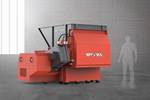










 (2).jpg;maxWidth=300;quality=90)
